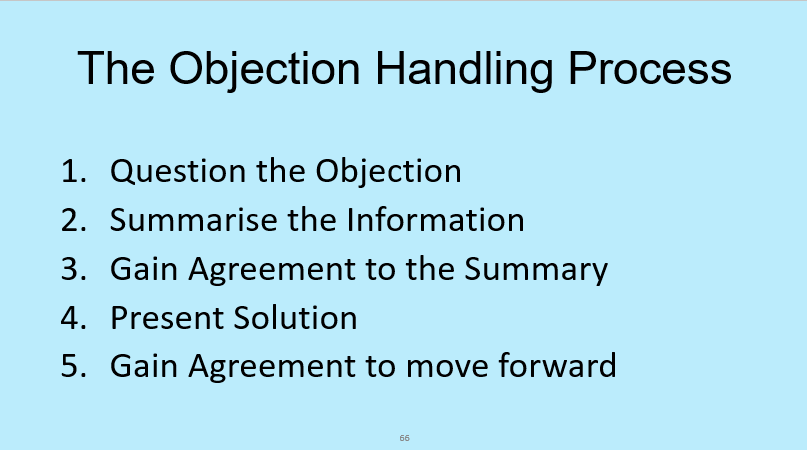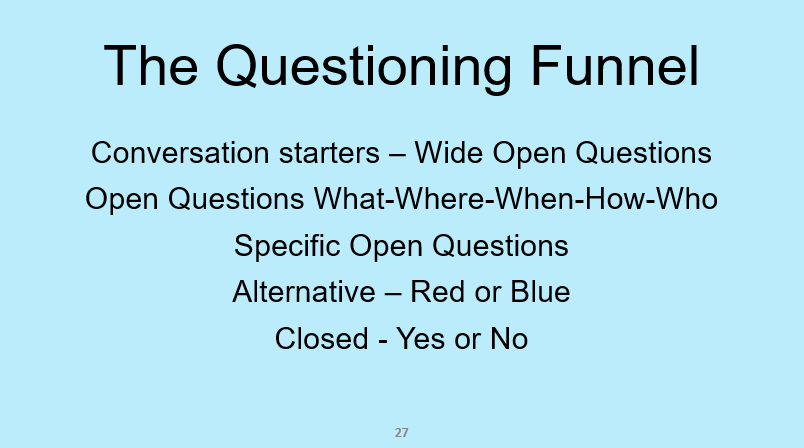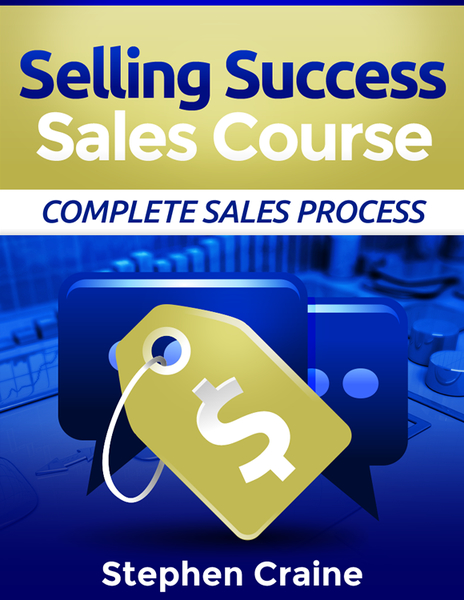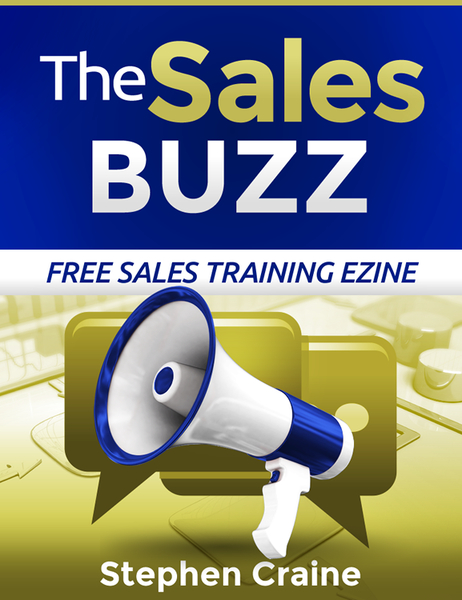OVERCOMING SALES OBJECTIONS STARTS
with QUESTIONs
Stage 1 of the Sales Objection Handling Process
 Slide from the Sales Training course Selling Success
Slide from the Sales Training course Selling SuccessOvercoming sales objections starts with questions to discover the real objection, the root cause, and how you can deal with it. This is Stage 1 of the Objection Handling Process.
So even if a prospect hits you with a common objection that you have a great response for, hold back, don't use it, find out more about the objection first. You also want to know if there are any other obstacles you need to deal with before you start presenting answers and solutions.
Questioning the objection will tell you if the objection is real or just an excuse to end the meeting or to not make a purchasing decision. You can't answer a false, smoke screen objection directly because it doesn't exist. You have to find the cause, the real objection.
The objective of the questioning stage of the objection handling process is to define the objection in terms of a need, want, or desire, the buyer has that you have not yet addressed. It's far easier to find a way to address a need than it is to take away a problem.
Overcoming Sales Objections - The Questions to Ask
Have you used a Sales Questioning Funnel before?
 Slide from the Selling Success sales training course
Slide from the Selling Success sales training courseIt's a great sales technique and can be used to question objections and in the stages of the sales process. It works really well when you are discovering the needs, wants, and desires of the prospect and their concerns.
The first part of the Questioning Funnel encourages the prospect to answer with explanations and descriptions, rather than short phrases or one-word responses. This gives you much more information and keeps the conversation flowing.
As you go down the funnel you ask narrower questions that gain more detail on the topic of the sales objection.
Here are the different types of questions used at each tier of the funnel, notice how they narrow in scope as you descend down the funnel...
Conversation Starters
If the prospect has given you a vague objection or one without detail of what their issue is or why they have raised it, start with a Wide-Open Question.
Wide open questions start with openers such as:
- Tell me about...
- Describe the...
- Give me more on the problem that will...
These opening lines get the prospect talking and there are many techniques you can add that will give you more information to use when overcoming sales objections.
When they have given you a response, you want more details...
Open Questions
The next type of question to use is usually the Open Questions.
Open questions start with who, what, when, where, or how. They are slightly narrower in scope, focus the question on a part of the previous response, and allow you to lead the conversation.
As you move down the funnel the questions start to narrow and give you specific information for overcoming sales objections...
Specific Open Questions
A Specific Open Question is formed by taking one of the words above that start an Open Question and adding a phrase to make the question focus on specific information on the topic being questioned. At this stage of the Sales Questioning Funnel you can also add: Which to the list of question starters.
For example: What colour, Which type, How many. Then the topic of the question is added to clearly define what is being asked.
If the prospect has raised a specific objection and given plenty of information you may want to start your funnel at this or one of the lower stages.
Further down the sales questioning funnel and close to having all the information required to overcome the sales objection...
Alternative and Closed Questions
The final tiers of questions at the end of the funnel, the Alternative and Closed Questions. These questions give you the fine detail, specific information that will help you discover the real objections and form the best responses.
When overcoming sales objections your Alternative Questions offer a choice of usually 2 options, for example:
Do you see the price as high because you are comparing it to what you are currently paying or because you don't see the value of the product?
Closed Questions require a yes or no answer, example: Is the price a problem because you are comparing it to other options?
There is a lot more you can add to the sales technique of questioning sales objections...
Overcoming Sales Objections by Questioning
Take each objection down the Questioning Funnel starting with a Wide Open Question to get the prospect talking about their concerns. Listen intently and consider taking notes if the it's a complex objection. Then start to fill in the gaps in the information with more specific questions focused on what you need to know.
Overcoming sales objections that are simple or precise, you may want to start the questions part way down the funnel. For example: An objection to price when the prospect is comparing your product to a competitor may only require a few alternative or closed questions.
Whether the objection has one basic topic or includes several concerns on different aspects of the sales proposal, this process gives you defined sales objections with all the information you require to overcome them.
The sales objection handling process has 5 stages. You can go to the other pages using the links below or see an overview of the process by visiting the main sales objection page at Sales Objections Process
Stage 1 - Question the Objection - This page
Stages 2&3 - Summarise and Gain Agreement
Stage 4 - Present the Solution
Stage 5 - Gain Agreement and Move Forward
Browse around the full sales objection process or start from the overview and put this proven sales technique to work for you.
The Selling Success Training Course Includes Overcoming Sales Objections
Above you have seen a brief overview of how to overcome sales objections by questioning using the funnel technique. There is a lot more you can do at the Questioning Stage to overcome more sales objections.
In the sales training on overcoming objections I've used to train corporate sales and telesales teams I include:
- Instruction and examples on the questions to use in your funnel.
- Common types of sales objections and why they occur.
- Smoke screens v Real sales objections and hot deal with them.
- How to have the best sales mindset when dealing with objections.
- Never fear sales objections when you have a process to overcome them.
Plus, building the Sales Objection Loop into your sales process, using your existing sales skills to handle objections, and full, detailed, step by step sales training on overcoming objections.
All the above, and a full sales process for all the stages of a sale, are in the sales training course Selling Success
The Sales Buzz - Newsletter Ezine
The weekly Sales Buzz eZine newsletter covers all aspects of sales with a different tip, technique, or discussion point each week.
See the latest pages to be added or updates on the Proven Sales Training website, real examples from the world of sales, and interesting innovations that sales people and businesses are using.
When you ask for the Sales Buzz to be delivered you get 2 free sales training mini-courses that are unique to this website, and we have a strict privacy policy so you know your details are kept safe.
See the 2 free mini-courses and get the Sales Buzz delivered by visiting: The Sales Buzz
- Homepage
- Sales Objections
- Sales Objection Handling Process
- Question the Objection

